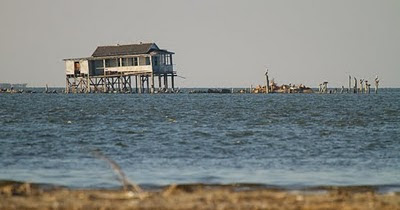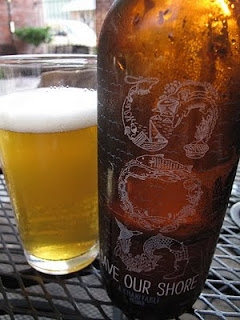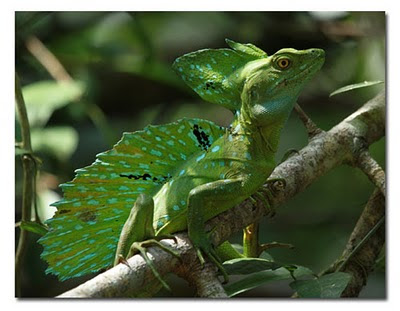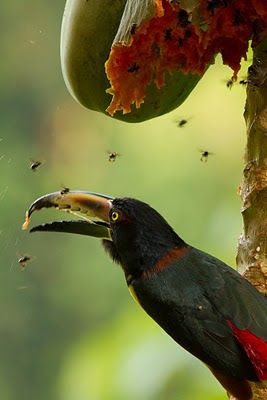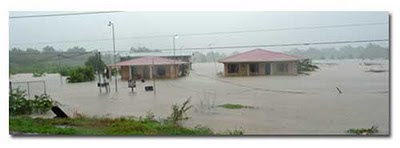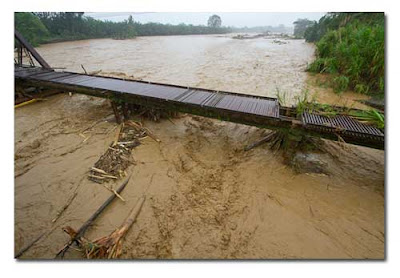
"And next up, your Tropical Storm Watch."
- In January through April we could have counted on over 20 million Pakistanis to kick off the year.
- In April we could have highlighted an oily distraction that would have lasted well into hurricane season in the Gulf of Mexico - keeping a couple billion of the planet captivated.
- In June and July the CCBN would have been flooded with broadcast opportunities as three-quarters of China's provinces were hit by flooding and 25 rivers saw record high water levels, causing the worst death toll in a decade, Liu Ning, general secretary of the government's flood prevention agency, told a news conference. Aside from the dead and missing, 645,000 houses were toppled and overall damage totalled 142.2bn yuan (£13.7bn). All the figures, Liu said, were the highest China had seen since 2000.
- In the summer, one weather system caused oppressive heat in Russia, while farther south it caused flooding in Pakistan that inundated 62,000 square miles, about the size of Wisconsin. That single heat-and-storm system killed almost 17,000 people, more people than all the worldwide airplane crashes in the past 15 years combined. We could have counted on over 20 million Pakistanis tuning in.
- September it started showering in SE Australia and by December was flooding most of the entire east coast of the continent - Australia had its wettest September-to-November spring on record, according to the Bureau of Meteorology. - a good portion of the population, say 20 million - they are still watching.
- In early November I could have reported live from Costa Rica as flooding from the snapped off tail of Hurricane Thomas killed and destroyed - but good ratings, all 4.5 million Ticos tuned in.
- December washed out the old year in Brazil by killing several hundred and drawing over 2 million local viewers
- The rain may cut the quality of more than 40 percent of the country’s wheat crop, according to estimates by National Australia Bank Ltd. Rio Tinto Group, the world’s third-largest mining company, said today coal mines in central Queensland state had partially resumed operation after rains.
- Macarthur Coal Ltd., Aquila Resources Ltd. and Vale SA said last week they had declared force majeure, while Xstrata Plc shut part of its rail system and said it would use stockpiles to supply customers. Force majeure is a legal clause invoked by companies when they can’t meet obligations because of circumstances beyond their control.
- Commonwealth Bank of Australia cut its estimate of wheat exports to 14 million tons in 2010-2011, from an earlier 16 million tons. “Many in the industry suggest the disruptions to the harvest this year and the implications for grain quality are the worst in a lifetime,” Luke Mathews, a commodity strategist at the bank, said in a report yesterday.
- Queensland Sugar Ltd., which ships more than 90 percent of the country’s sugar, also today cut its export forecast to 2.2 million tons because of weather, compared with an outlook earlier in the year of as much as 3 million tons.
- TODAY From Brazil - The region has already seen the largest rainfall since 1967, according to the government’s Inmet meteorology agency. Teresopolis, the largest and hardest-hit city, where at least 228 people died, absorbed 259 millimeters (10.2 inches) of rain in the past 10 days, while the average rainfall for the month of January is 290 millimeters, according to Inmet.
- The floods in Rio are the world’s fourth-worst disaster involving floods and landslides over the past 12 months by the number of deaths, according to the Centre for Research on the Epidemiology of Disasters, or CRED, a Brussels-based independent research institute that collaborates with the World Health Organization.
- TODAY - More than a million people in Sri Lanka are suffering from massive flooding described by the government as the worst natural disaster since the 2004 tsunami.

